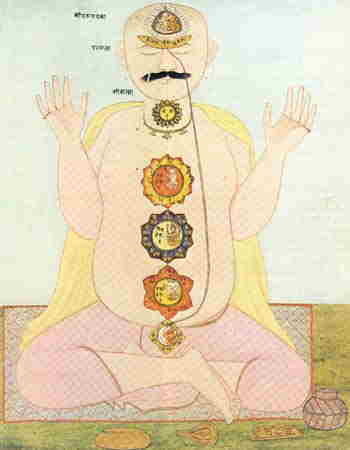|
Nutrition as therapy
- Background |
Dr Ashraf Virmani
Dietary
therapy provides a powerful tool for correcting disharmonies and
micro deficiencies which can affect the fundamental metabolic and physiological
systems of the body. Proper nutrition can help in conditions ranging from
allergy to diabetes and cancer.
You
are what you eat - is not just a saying by the old folk but a truth that has
been known since ancient times. After the zeal of the western scientists in last
50 or 60 years following their success in replication (chemical synthesis) of
products like digitalis, aspirin and antibiotics (all natural herbal products)
and the growth of the chemically-based pharmaceutical industry, it has been the
public that has been in the forefront to the return to 'natural' treatments
based on prevention rather than cure. It is rather strange that the academic
and medical profession remained largely resistant and close minded to this
evolution instead of leading it. It was the researchers from the East together
with various enlightened individuals in the west (considered hippies or worse)
who in the last 30 to 40 year persevered with alternative medicines and now the
'status quo' have seen the potential they have jumped aboard this new field, now
also referred to as 'Nutritional Pharmacology'.
 The
components of the food are broken down and absorbed into the blood stream and
form there they are taken to various tissues and organs. These substances affect
the metabolic and even the physical status of these organs and tissues. The
effects are even more profound than previously imagined since the actual genetic
response at the cellular level is changed.
The
components of the food are broken down and absorbed into the blood stream and
form there they are taken to various tissues and organs. These substances affect
the metabolic and even the physical status of these organs and tissues. The
effects are even more profound than previously imagined since the actual genetic
response at the cellular level is changed.
The
state of nutrition and therefore function of the tissues and organs is affected
and this can affect not only the individuals overall health and risk of
contracting disease or malfunction, but also the health of the offspring. For
example, in a malnourished mother the placenta may not be adequately developed
and this will affect the fetus, and increases its risk in later life of
contracting disease. This domino effect could already depend on the grandmothers
nutritional state or her mother before that !
Thus
a great part of one's health destiny is predetermined in the fetal stage and
younger age but some of this destiny can be modified in a positive manner even
in later life by compensatory nutritional diets.
 In diabetes disease pathology, insulin
resistance appears to be a common feature and a possible contributing factor to
several frequent health problems, including type 2 diabetes mellitus, polycystic
ovary disease, dyslipidemia, hypertension, cardiovascular disease, sleep apnea,
certain hormone-sensitive cancers, and obesity. Modifiable factors thought to
contribute to insulin resistance include diet, exercise, smoking, and stress.
Lifestyle intervention to address these factors appears to be a critical
component of any therapeutic approach. The role of nutritional and botanical
substances in the management of insulin resistance requires further elaboration;
however, available information suggests some substances are capable of
positively influencing insulin resistance.
In diabetes disease pathology, insulin
resistance appears to be a common feature and a possible contributing factor to
several frequent health problems, including type 2 diabetes mellitus, polycystic
ovary disease, dyslipidemia, hypertension, cardiovascular disease, sleep apnea,
certain hormone-sensitive cancers, and obesity. Modifiable factors thought to
contribute to insulin resistance include diet, exercise, smoking, and stress.
Lifestyle intervention to address these factors appears to be a critical
component of any therapeutic approach. The role of nutritional and botanical
substances in the management of insulin resistance requires further elaboration;
however, available information suggests some substances are capable of
positively influencing insulin resistance.
Minerals
such as magnesium, calcium, potassium, zinc, chromium, and vanadium
appear to have associations with insulin resistance or its management. Amino
acids, including L-carnitine, taurine, and L-arginine, might also play a
role in the reversal of insulin resistance. Other nutrients, including glutathione,
coenzyme Q10, and lipoic acid, also appear to have therapeutic potential.
Polyunsaturated
fatty acids of the omega 3 series, such as eicosopentanoic acid (EPA) may
also be useful in diabetes and other autoimmune type diseases due to their
immunosuppresant and anti-inflammatory properties.
Research
on herbal medicines for the treatment of insulin resistance is limited; however,
silymarin produced positive results in diabetic patients with alcoholic
cirrhosis, and Inula racemosa potentiated insulin sensitivity in an animal
model.
Look up further information on the various components of nutrition: Information
on Nutrition
Apples can keep the
doctor away (BBC article)
References
Kelly GS Insulin resistance: lifestyle
and nutritional interventions. Altern
Med Rev
2000 Apr;5(2):109-32
Vitamins,
Minerals, Herbs and Dietary Supplements
An indespensible guide to over 500 vitamins, minerals, medicinal herbs, amino
acids and other dietary supplements. Includes information on RDAs, safe dosages,
benefits and side effects. http://www.healthgate.com/vit/index.shtml
Complete
Guide to Prescription and Non-Prescription Drugs
This book profiles hundreds http://www.healthgate.com/drugs/index.shtml
BACK
 The
components of the food are broken down and absorbed into the blood stream and
form there they are taken to various tissues and organs. These substances affect
the metabolic and even the physical status of these organs and tissues. The
effects are even more profound than previously imagined since the actual genetic
response at the cellular level is changed.
The
components of the food are broken down and absorbed into the blood stream and
form there they are taken to various tissues and organs. These substances affect
the metabolic and even the physical status of these organs and tissues. The
effects are even more profound than previously imagined since the actual genetic
response at the cellular level is changed. In diabetes disease pathology,
In diabetes disease pathology,